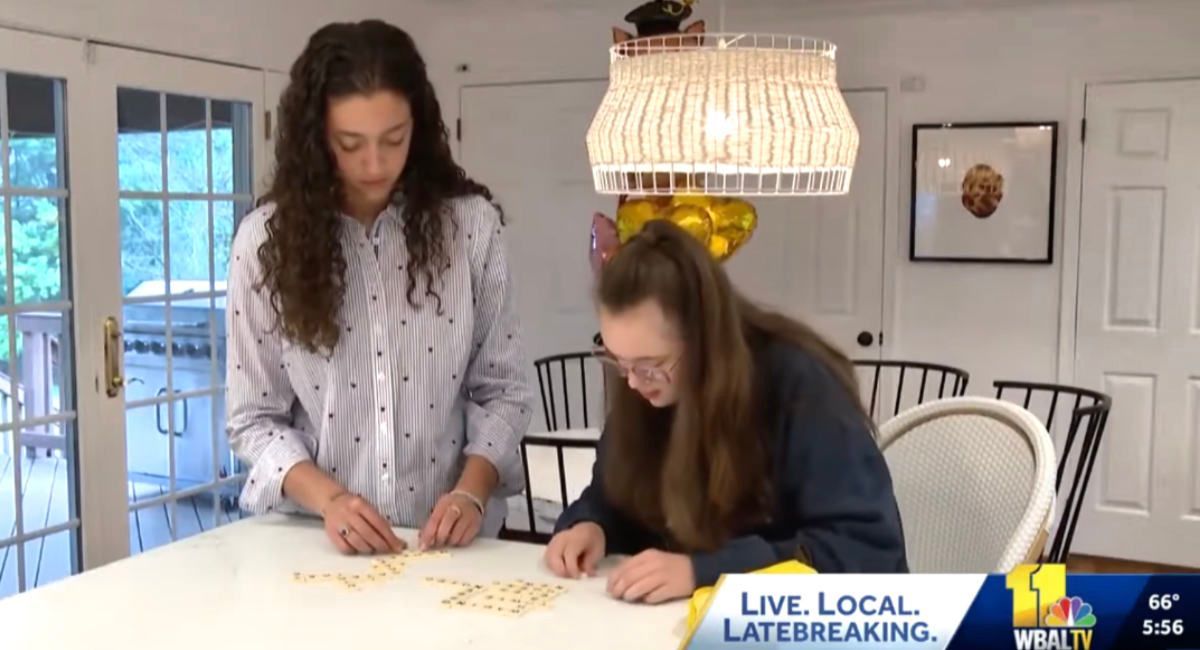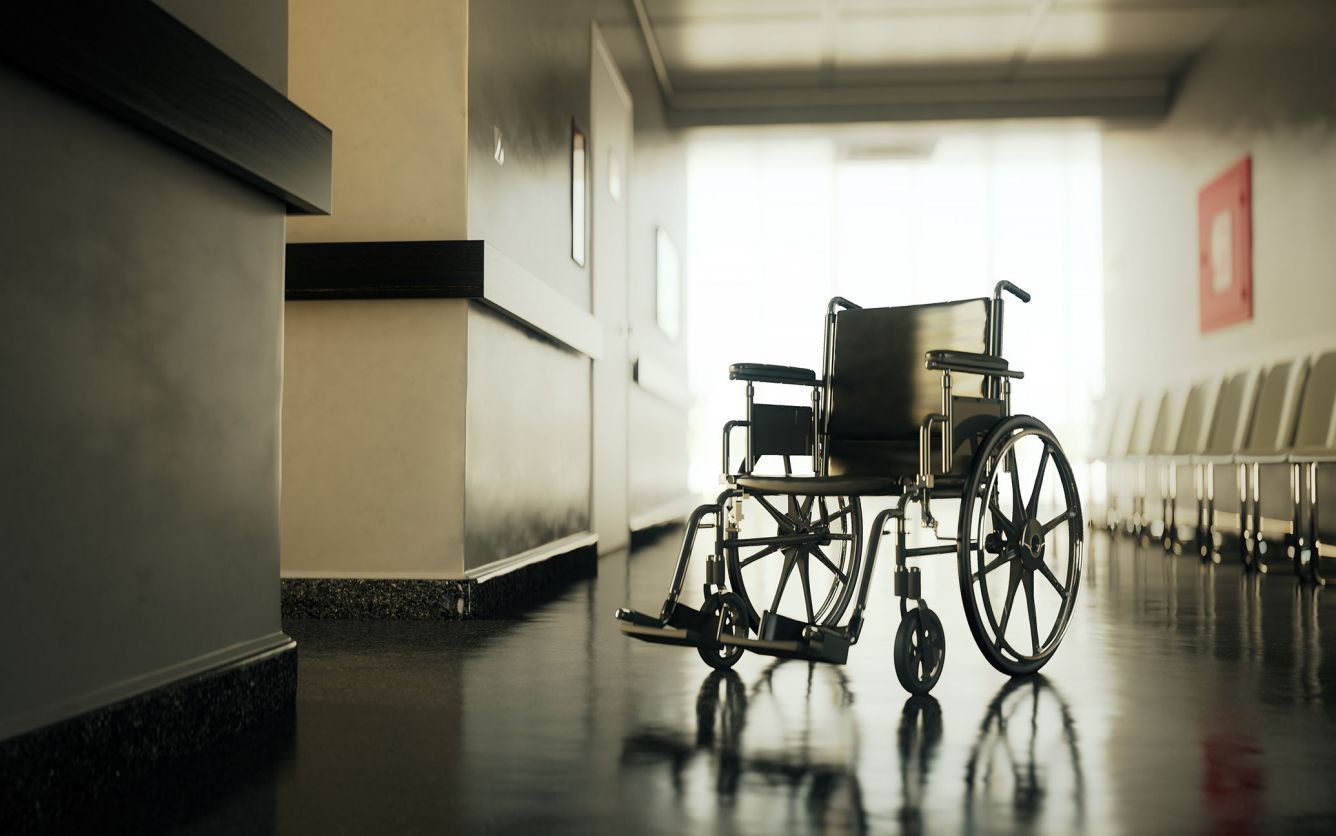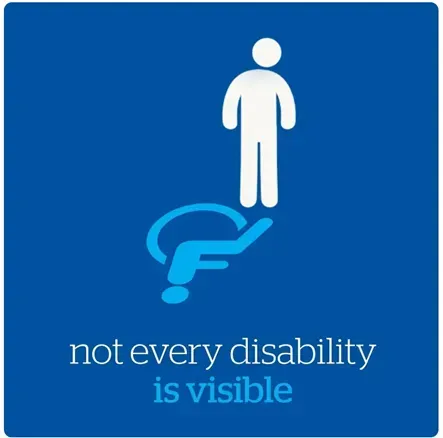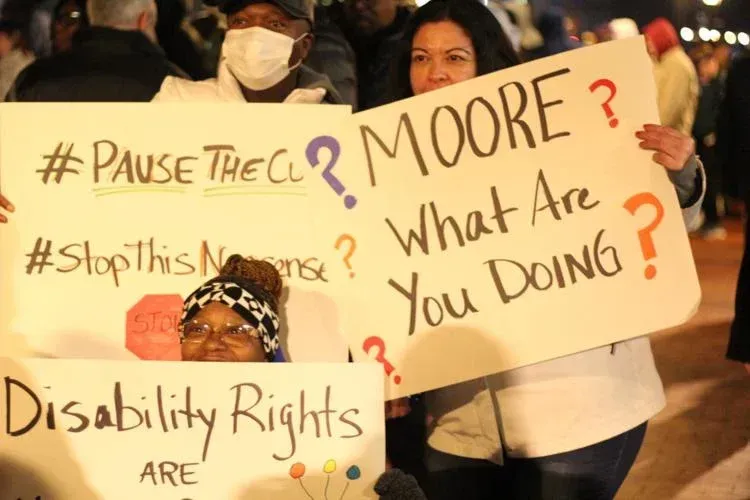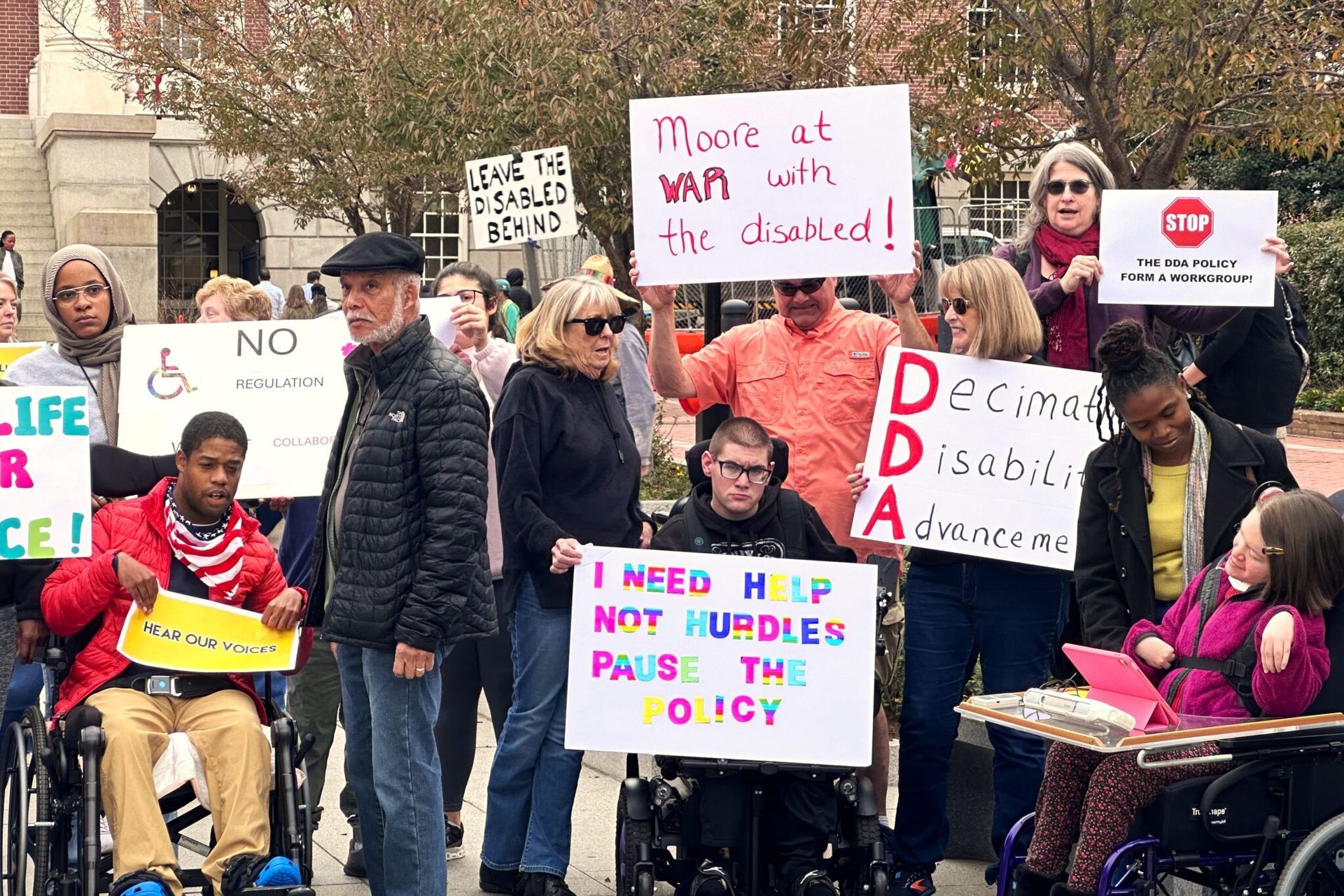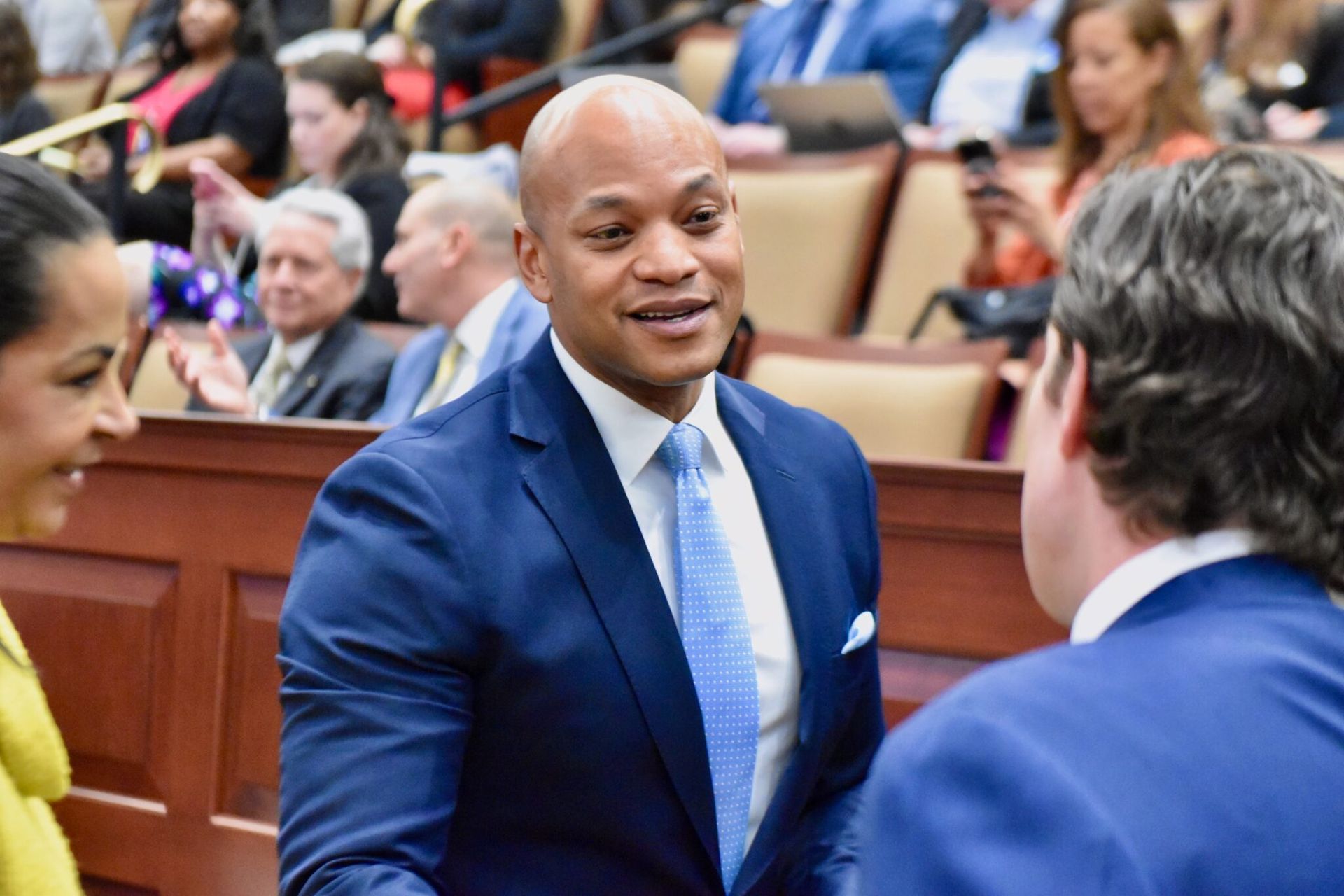Open Doors For People With Disabilities In Hollywood

LOS ANGELES — After her first experience of the Cannes Film Festival in 2008, talent manager Eryn Brown wanted to end her nascent Hollywood career.
Attending film markets such as Cannes can be grueling for most attendees, with parties and meetings held in busy hotels, restaurants, theaters, even aboard yachts. For Brown, who has a congenital, unidentified disability and needs leg braces to walk, accessing many of the buildings and events was a struggle.
At the iconic red steps at the Palais des Festivals where women are expected to wear high heels, Brown either had to be carried or use a side entrance and be separated from her clients. Inside, accessible seating was reserved.
“I actually contemplated leaving the business,” Brown, 47, said. “I thought, if I have to go through this dehumanization every year, I don’t think I can do it. I want to be the best at what I do, which involves filmmakers, and Cannes is the pinnacle, so how can I do that?”
Brown didn’t quit. Instead, she pushes for greater access for others with disabilities who have been hindered by discrimination in the film and TV industry.
In April, the Stanford graduate officially launched 1in4, an initiative run from her Los Angeles home, nearly 20 years after her first humiliating experience at Cannes. The grassroots coalition of executives and creatives has called on studios, streaming companies, talent agencies and other businesses to include people with disabilities in their diversity programs.
“We need to see a commitment from the contractors and vendors that really feed the studios and streamers,” Jim LeBrecht, the Oakland-based co-writer and co-director of this year’s Oscar-nominated disability rights documentary “Crip Camp.” LeBrecht, who has spina bifida and uses a wheelchair, is one of the cofounders of 1in4 and featured in the documentary. Brown represents Nicole Newnham, the film’s co-writer and co-director.
“I’m yearning for this day (when) … we see our representation in comedies and on television and in film and in dramas that really represents our true numbers in society, and really has storylines that are much truer to our everyday lives.”
Of all speaking characters across the top 100 movies of 2019, only 2.3% had a disability, according to a study by the USC Annenberg Inclusion Initiative. Another study of the top 10 network TV shows for 2018 found just 12% of characters with disabilities were played by actors with disabilities, according to the Ruderman Family Foundation.
Brown said she was inspired to start a campaign for those with disabilities after last year’s Sundance festival gave “Crip Camp” an audience award and racial justice protests refocused attention on Hollywood to diversify.
“I started to examine this greater rise in consciousness that we’re experiencing about marginalization and systemic discrimination and in these conversations, I found that disability was always left out,” Brown said. “When I tried to advocate for disability being part of the conversation, I was met with indifference and in some cases hostility.”
Brown reached out to LeBrecht and others to form a group — also called 1in4 — to advocate for change in Hollywood. The name refers to the proportion of the adult U.S. population with a visible or invisible disability. The group is in the process of registering as a nonprofit and is being financed by the coalition members, private donations and the pro-bono work of allies, Brown said.
The group has called on studios and others to add disability to their diversity policies, employ people with disabilities at all levels and create more content about disability by and with people with disabilities. The group also asks that employers require an accessibility coordinator for productions and that talent representatives work with artists with disabilities.
So far, Brown said, her group has met with representatives from Netflix, Amazon and talent agencies. She said the meetings have been positive.
None of the companies would comment for this article.
One problem is that there are few executives in the industry green-lighting projects from the disability community, LeBrecht said.
“I don’t think anybody’s really appreciated that the stories don’t have to be these harmful portrayals of people,” LeBrecht said. “There are really unique, compelling stories out there. But … we weren’t able to reach people to pitch them to necessarily.”
LeBrecht cites the 2016 Warner Bros movie “Me Before You,” as an example of harmful ideas about people with disabilities perpetuated by Hollywood. The film drew criticism of its portrayal of a paralyzed banker. Warner Bros. declined to comment.
An accessibility coordinator would have helped Natasha Ofili, a deaf actress and writer who featured in Netflix’s “The Politician,” in her early auditions.
Another co-founder of the group, she recalled an audition for a commercial that had hired an interpreter who she said was clearly not qualified and didn’t understand what she was signing.
“From audition to working on set, it was really bad,” Ofili said via Zoom. “I had to improvise.”
She got the commercial job nonetheless and later was able to get qualified interpreters hired, something an accessibility coordinator could have done to avoid any mishaps.
“This is a person that would be able to catch all that,” she said. “And that way we can cut all of that madness and prevent all of this headache and waste of time, waste of resources and stress on both parties.”
Making productions accessible is not difficult, according to Kaitlyn Yang, the CEO of Alpha Studios and an on-set visual effects supervisor.
On the show Yang just wrapped for Apple TV, which she declined to name, it took adding two ramps to make the set accessible to her, she said.
“When people think about making sets accessible, I don’t know if they’re thinking about tearing down the entire building or rebuilding it. It’s never that,” Yang said. “Especially for film productions, we’re so used to making multiples of everything. If we can have multiples of the Millennium Falcon built to scale, we can definitely have two ramps.”
The 33-year-old Chinese American immigrant, who worked full time through her studies at the University of Southern California film school, was born with spinal muscular atrophy and uses a wheelchair. As she progressed in her career, the reasons used to reject her job applications became more creative, she said.
“My favorite rejection was that they didn’t hire me for a TV pilot because I didn’t have an Oscar,” Yang said. Yang didn’t believe anyone eventually hired for the project had won Oscars either.
Some resort to trying to hide their conditions or disability. Earlier in her career, Sara Fischer, now head of physical production at Shonda Rhimes’ production company Shondaland, would hide that she had multiple sclerosis that could cause her to limp out of fear that it would cost her jobs. On one production, the executive producers asked her if her lack of balance was because she was drunk.
Fischer is now open about her situation and makes efforts to make the industry and sets more accessible. “It can be as simple as adding ramps or routing cable differently,” she said. “It also starts with me and my production exec friends saying let’s figure out how we help others to be able to work on set.”
That had been an issue for Brown. Back in the mid-1990s, the northern California native tried to break into the industry, after graduating from Stanford with honors in American Studies, by applying at a talent agency.
In rejecting her application, a woman in human resources told her it would take her too long to go to the bathroom and she wouldn’t be able to get coffee for clients or walk them to the elevator, Brown said. Eventually, she got jobs at New Line Cinema and in talent management, spending the last decade with Century City-based Management 360.
Brown persisted with Cannes and went back in 2009, where she met future client Felix Van Groeningen, who went on to make the Golden Globe-nominated addiction drama “Beautiful Boy.” Since then, Brown has had conversations with the Cannes festival about ways to improve access.
“It’s not just about me getting into that screening room. It’s about everyone who is ‘other-ised’ getting into those rooms,” Brown said. “Because if you don’t, then other-ised artists who we might have connected with don’t get discovered … And their voices get lost and their stories don’t get told.”
© 2021 Los Angeles Times
Distributed by Tribune Content Agency, LLC.

